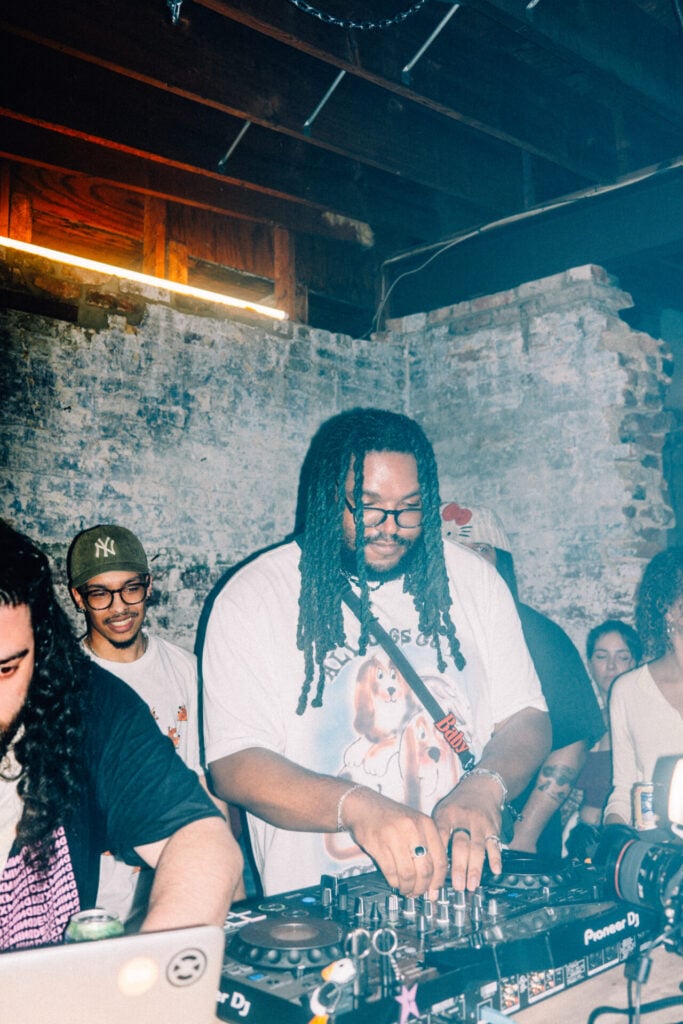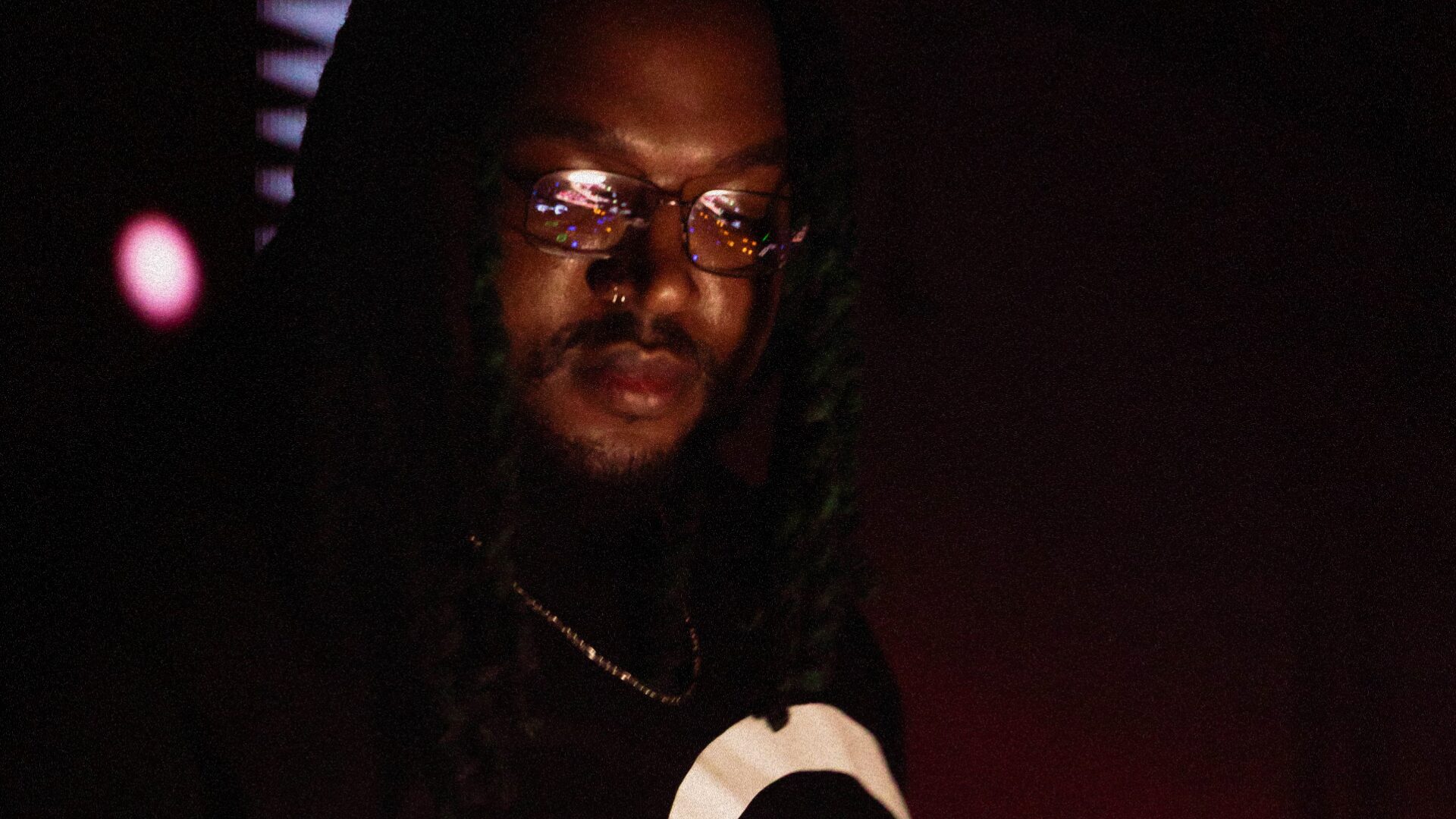Few selectors approach radio with the curiosity and fearlessness that Tromac brings to the table. A DJ and producer shaped by experimental electronic music and the boundary-pushing worlds of Soulection and Night Swim Radio, he’s built a sound rooted in discovery, exploration and club-driven energy.
Since joining Eaton Radio in 2019 with his show ‘You And What Army?,’ Tromac has treated each show like a creative laboratory. A place to test new ideas, level up his skills and spotlight the underground artists shaping the future of club music. What started as a leap into unfamiliar territory has become a defining part of his identity as a DJ, and a platform for the community around him to grow.
We caught up with Tromac to hear about his journey from high school to a crucial voice in radio.
Contents
- 0.1 How did your journey with music get started?
- 0.2 How did you get your radio show on Eaton Radio?
- 0.3 Was there something about radio that really attracted you to it?
- 0.4 What are some of the key themes of your show ‘You And What Army?’
- 0.5 What would you say was the one turning point for you in your radio journey?
- 0.6 How do you prepare for your show?
- 0.7 Is there one radio show from your archive that you think defines you?
- 0.8 What would you say are some of your proudest achievements in your radio career so far?
- 0.9 As far as building the community around you goes, what has satisfied you the most?
- 0.10 Do you have any golden tips for presenting and putting together a radio show?
- 0.11 What do you think the future of radio looks like to you?
- 0.12 Have you taken any key learnings about yourself through your radio show?
- 1 Share this:
How did your journey with music get started?
Tromac: I started making music in high school. I’ve always been a fan of experimental sounds and when I discovered electronic music I was immediately fascinated. Along with that came my introduction to shows like Soulection, ‘Night Swim Radio,’ ‘Souletiquette’ and ‘The Future Beats Show.’ These shows were exploring sound far beyond any boundaries I knew at the time and it inspired me to dig for music in ways I hadn’t thought to.
How did you get your radio show on Eaton Radio?
When I started my radio show I saw an Instagram post about openings for new resident DJs at Eaton Radio. I talked to a couple of my friends and workshopped ideas of what would be a good submission. Hearing back from Eaton, they liked my proposal and I’ve been a resident DJ over there since 2019.
Was there something about radio that really attracted you to it?
I think at the time I started my show I really wanted to try something I’d never done before, sharing my DJ sets online consistently. It was honestly such a great opportunity beyond what I knew at the time. Immediately, it turned into a chance for me to try my ideas outside of my home and share them on a wider scale all while honing my DJ skills.
What are some of the key themes of your show ‘You And What Army?’
I try not to play the same set twice, making it a point to have new music every show. Even if I do play a track I played once before it’s never in the same way, though that rarely happens. I want to have each episode feel like a new experience, which is why I’ll often feature another DJ on the latter half.
What would you say was the one turning point for you in your radio journey?
When I decided to learn how to use CDJs. Having this residency gave me an incredible opportunity to advance my DJ career. For a long time I would bring my laptop and controller to the booth and play off of that. But I would spend extra time in the studio outside of my show, but learning to use CDJs changed all of that.

How do you prepare for your show?
I usually just download whatever is new that I’ve been liking lately. Or tap into a playlist I haven’t used for the show before.
Is there one radio show from your archive that you think defines you?
Yeah, this one from about two years ago. It was in the middle of an era when I started to become sooo obsessed with club music. Like, deeper than I already was, which honestly led me to where I’m at today. Very heavy on Baltimore, Philly and Jersey Club as well as some Ghetto Tech and Juke/Footwork which are my primary styles.
What would you say are some of your proudest achievements in your radio career so far?
Creating a platform for local artists and DJs using the resources provided to me while honing my technique as a DJ.
As far as building the community around you goes, what has satisfied you the most?
Watching people I know that are talented and I believe in, claim their destiny and be acknowledged for their talent.
“Radio allowed me to try my ideas outside of my home and share them widely while honing my DJ skills.”
Do you have any golden tips for presenting and putting together a radio show?
Use your creativity! A radio show is an opportunity to try something new as a DJ. Whereas you might have sent mixes off to appear on someone else’s show or station, having your own platform of sorts gives you your own dojo. A place to level up and invite others to spar with you. This means you can come up with your own name, marketing, themes, and it presents a challenge to be more creative!
What do you think the future of radio looks like to you?
I think it looks very similar to today, but with more emphasis on community. Like actually reaching people rather than just archiving.
Have you taken any key learnings about yourself through your radio show?
My experience as a radio host got me more comfortable taking risks during live performances. It taught me that the best moments are the ones that happen spontaneously.
